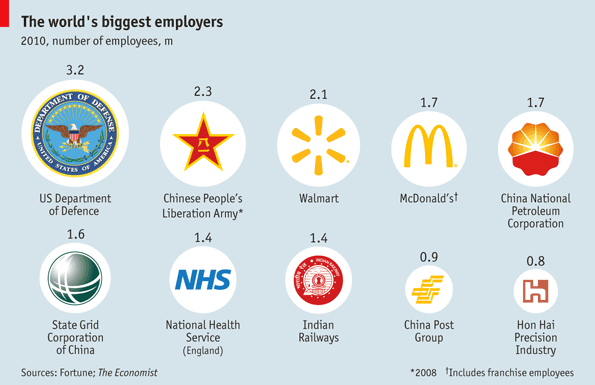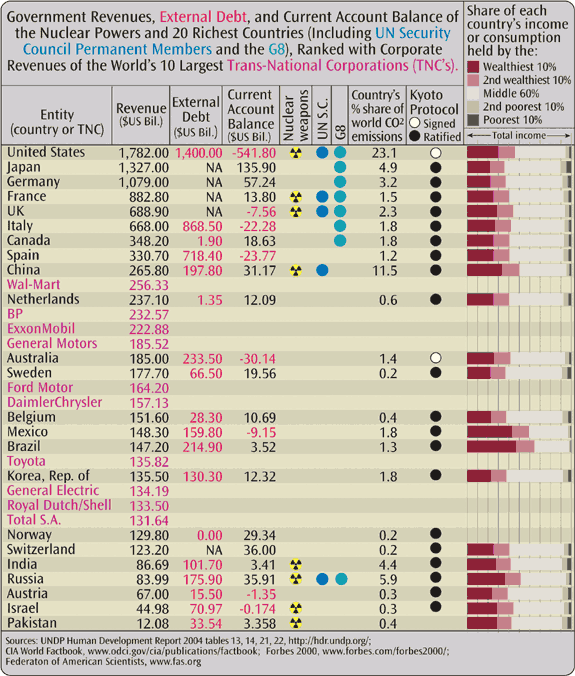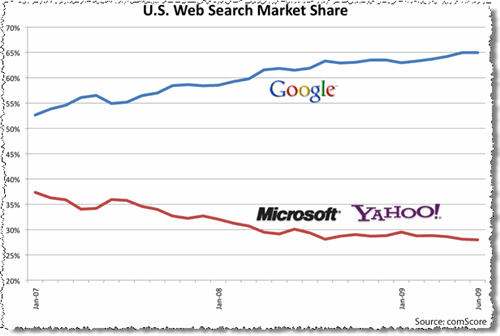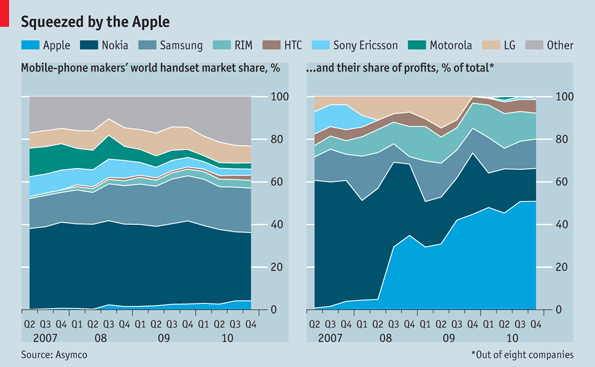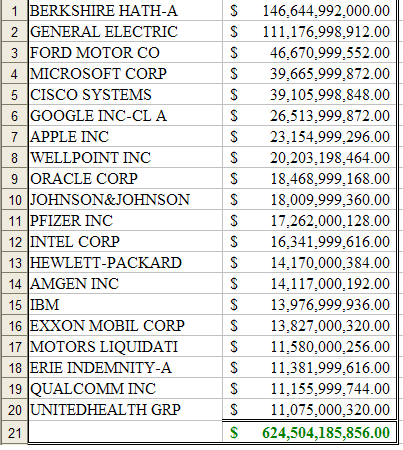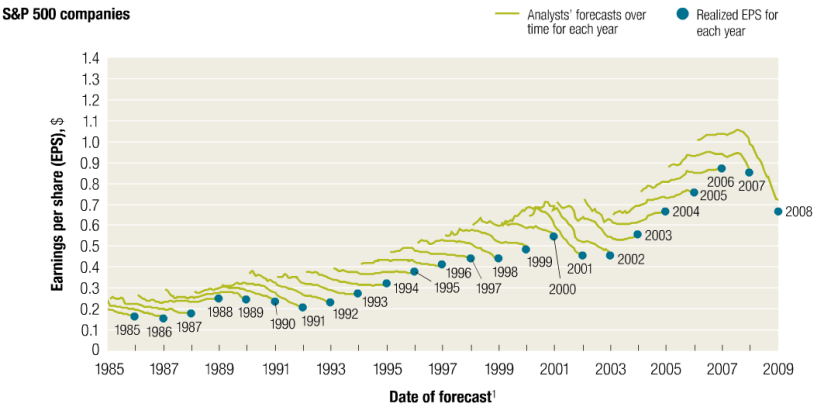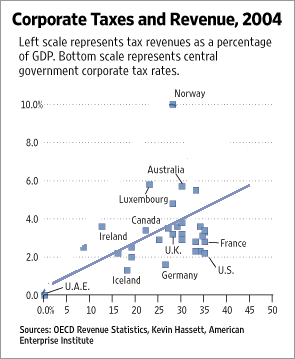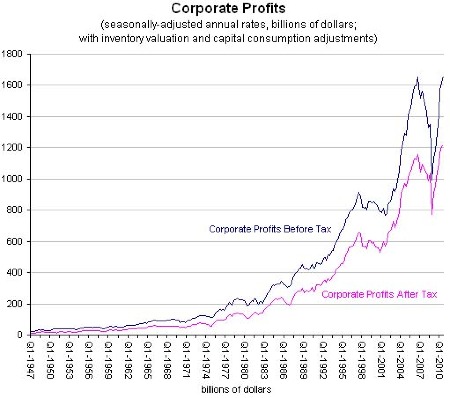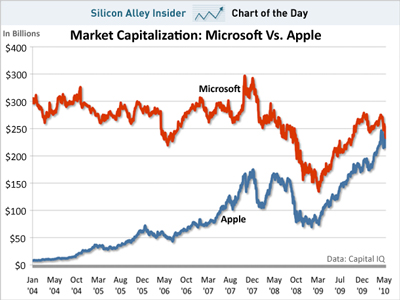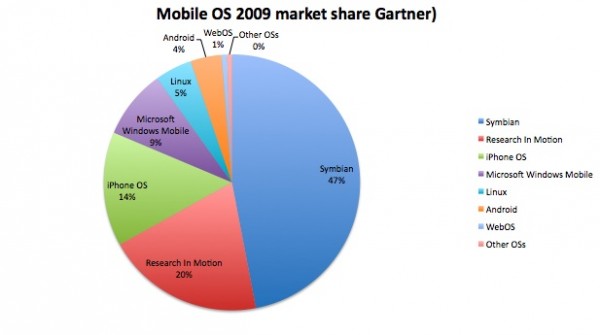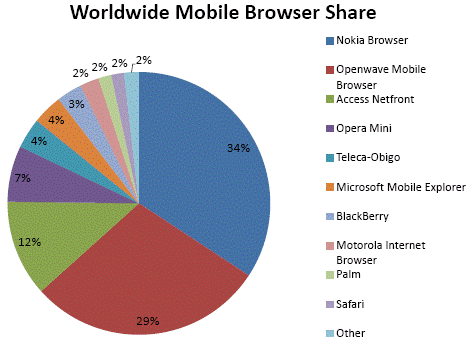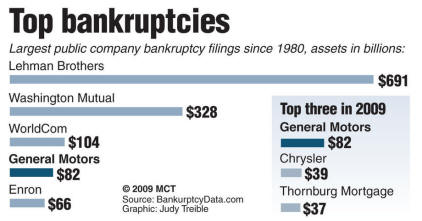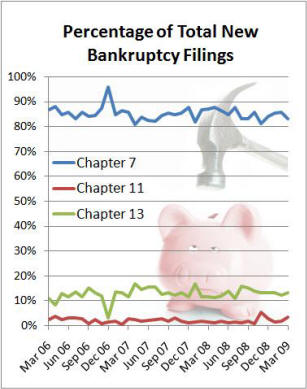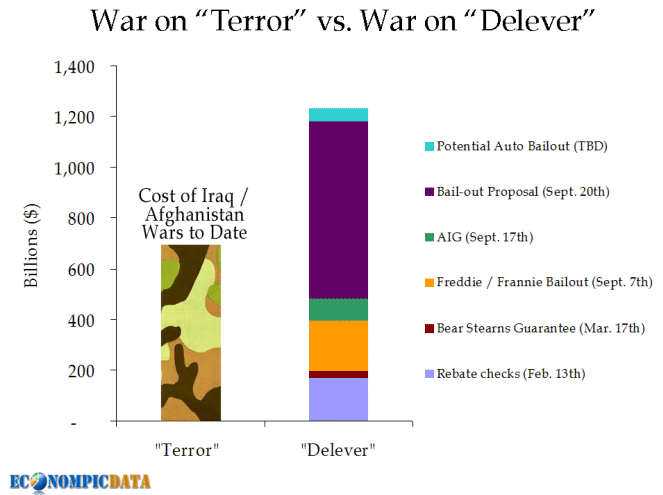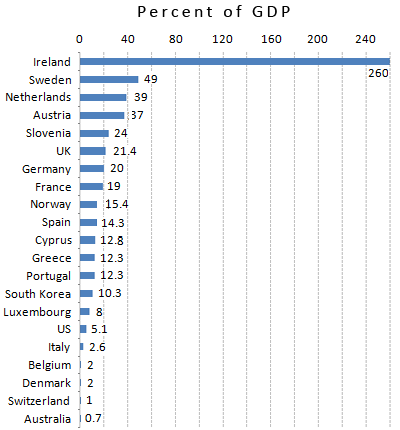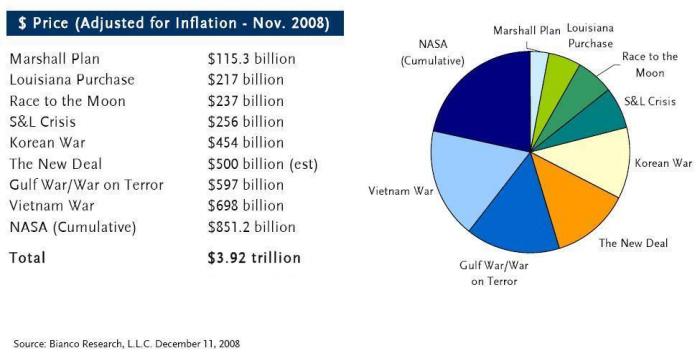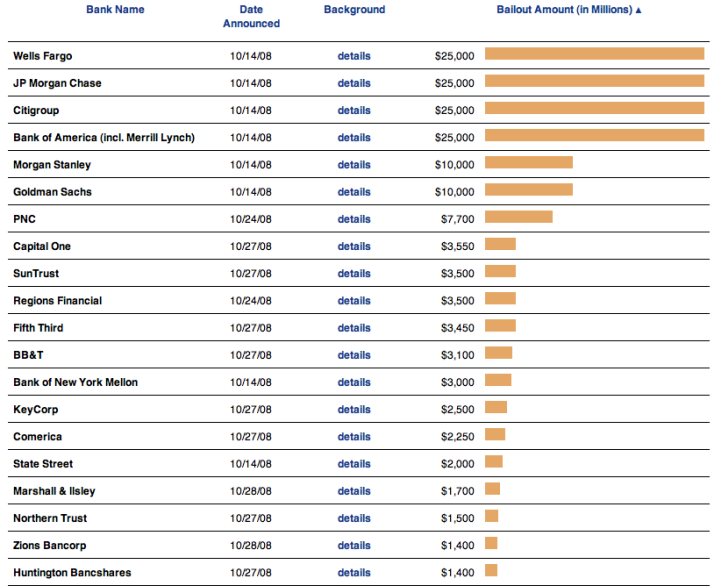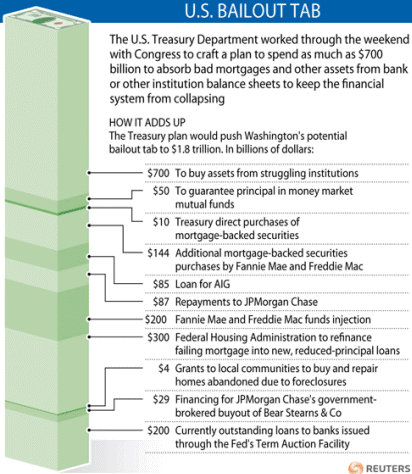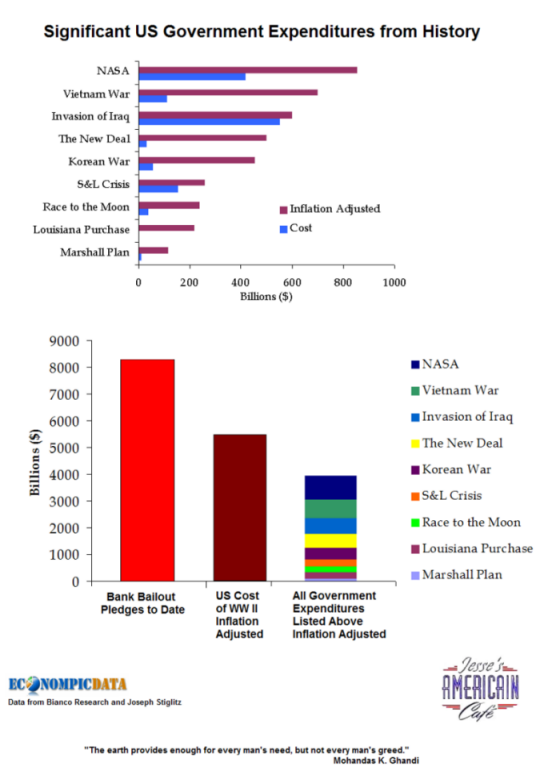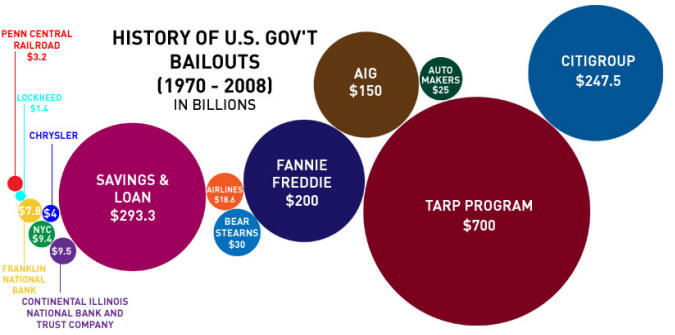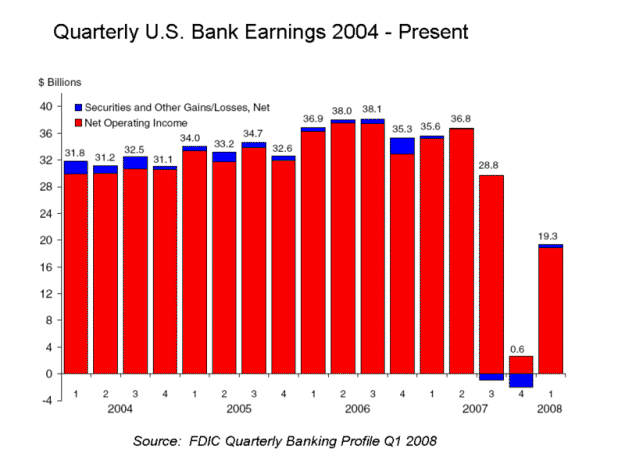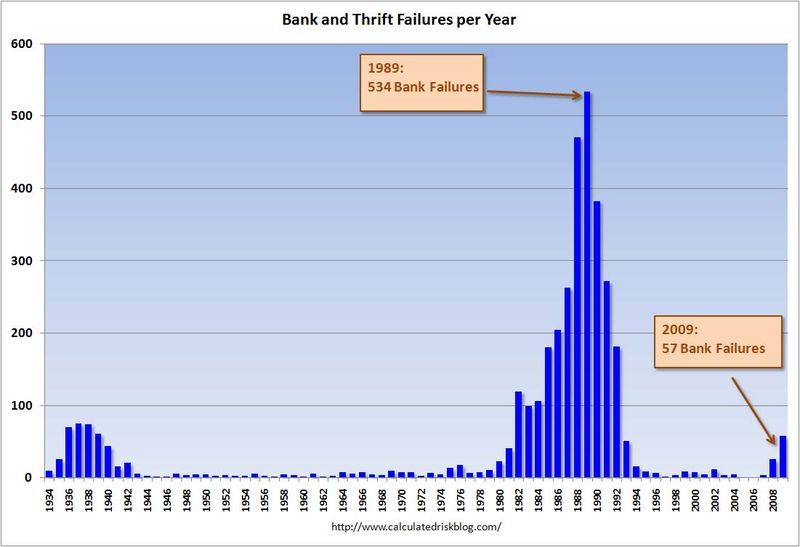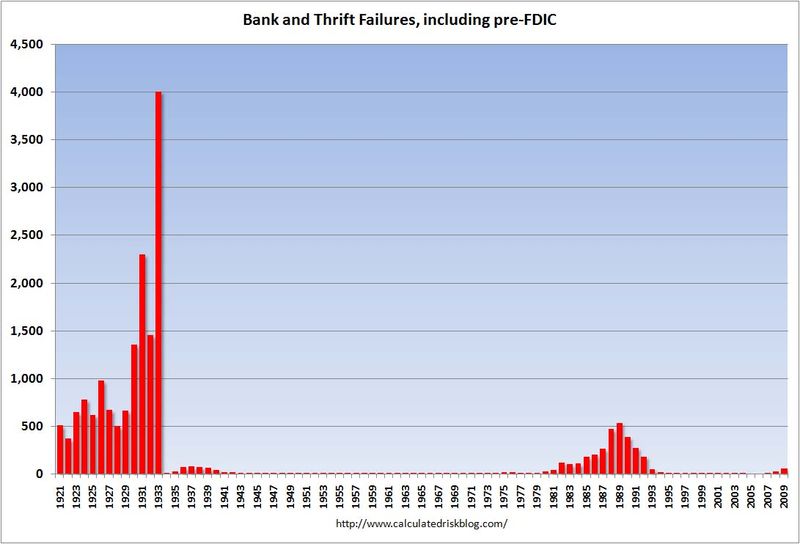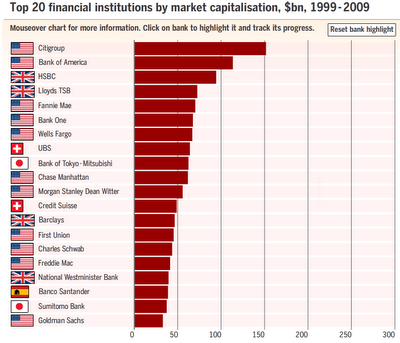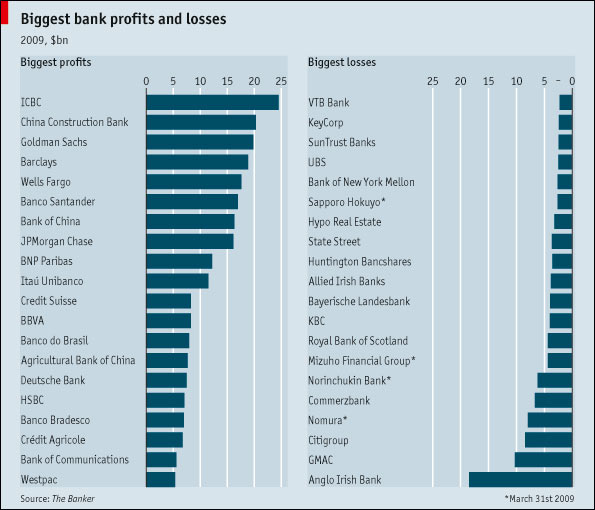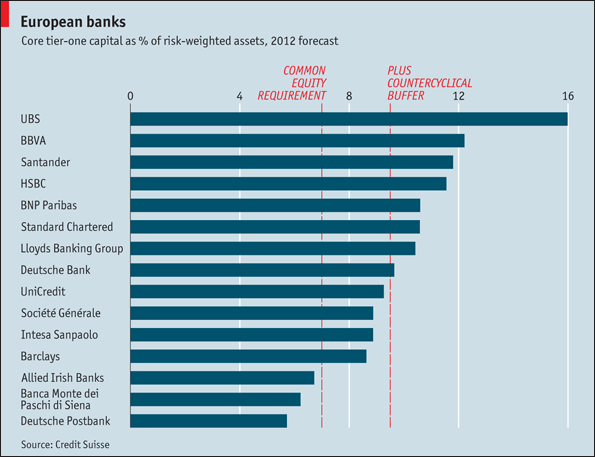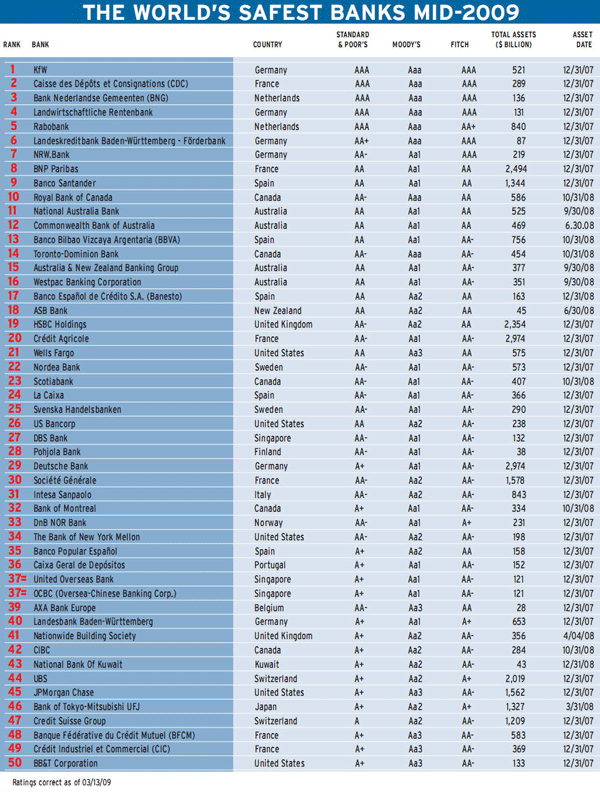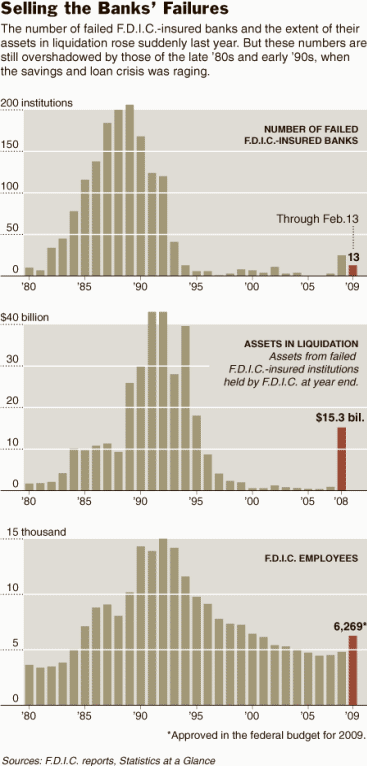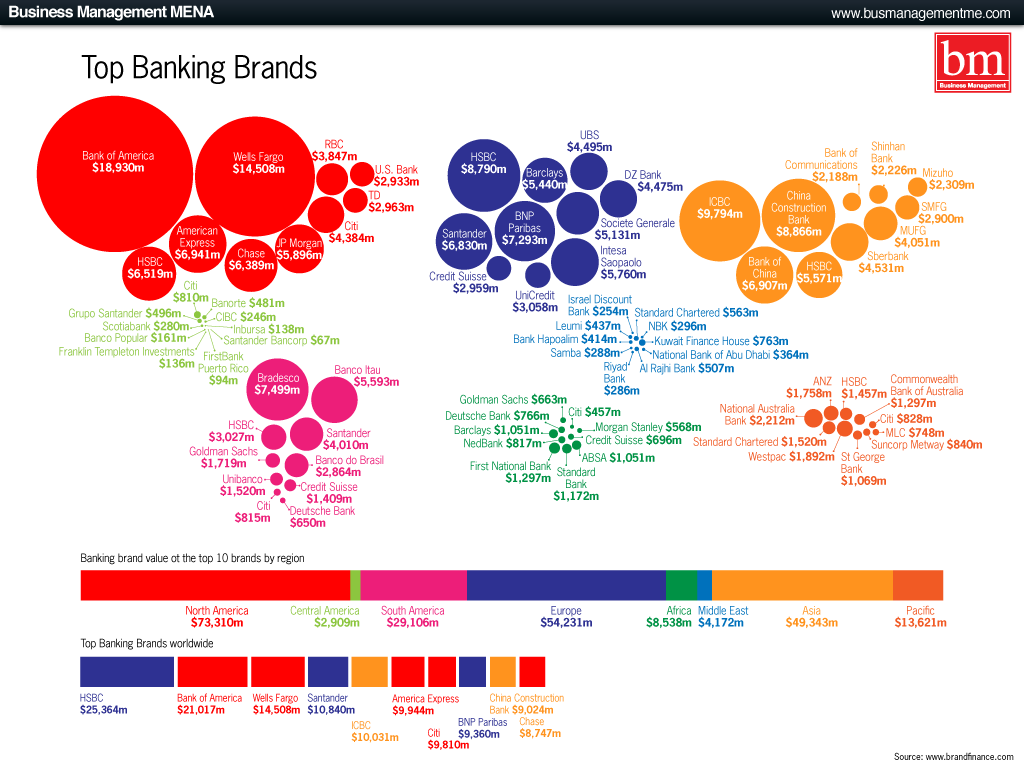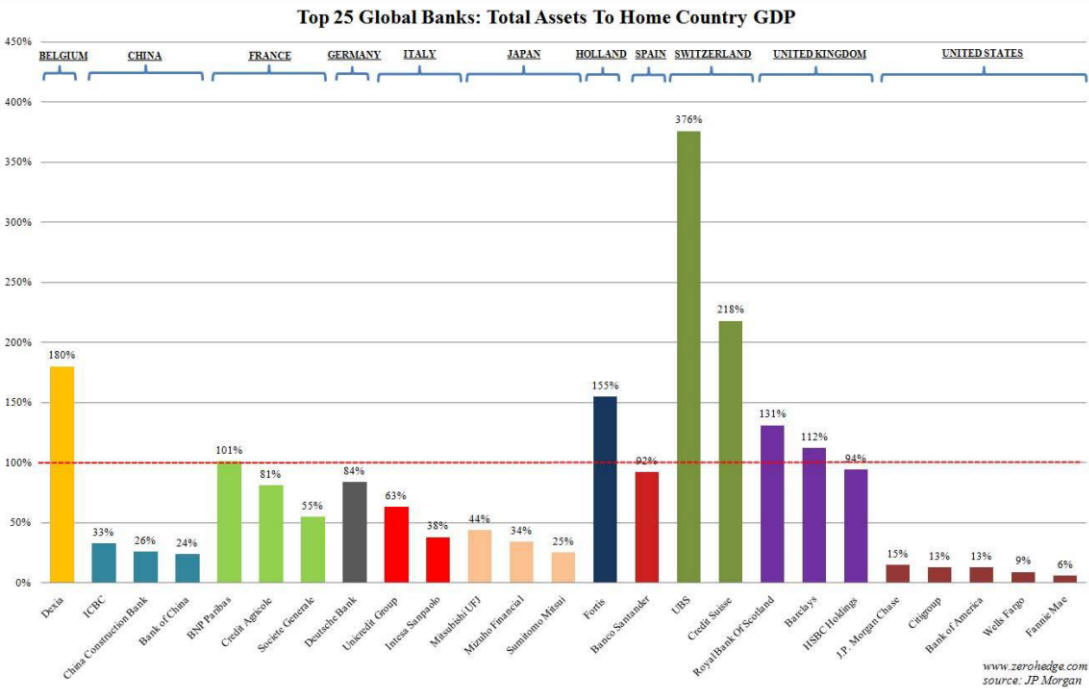|
http://en.wikipedia.org/wiki/Category:Financial_crises http://en.wikipedia.org/wiki/Category:Stock_market_crashes http://en.wikipedia.org/wiki/List_of_largest_corporate_profits_and_losses http://en.wikipedia.org/wiki/List_of_largest_European_companies_by_revenue http://en.wikipedia.org/wiki/Sunday_Times_Fast_Track_100 http://en.wikipedia.org/wiki/Bentley_Infrastructure_500
|
||
| Corporate Losses | ||
|
|
||
| Market capitalization (or market cap) is the total value of the issued shares of a publicly traded company; it is equal to the share price times the number of shares outstanding. As outstanding stock is bought and sold in public markets, capitalization could be used as a proxy for the public opinion of a company's net worth and is a determining factor in some forms of stock valuation. The total capitalization of stock markets or economic regions may be compared to other economic indicators. The total market capitalization of all publicly traded companies in the world was US$51.2 trillion in January 2007 and rose as high as US$57.5 trillion in May 2008[5] before dropping below US$50 trillion in August 2008 and slightly above US$40 trillion in September 2008 | ||
| Market Capitalization | ||
| "Market share is the percentage of a market (defined in terms of either units or revenue) accounted for by a specific entity." In a survey of nearly 200 senior marketing managers, 67 percent responded that they found the "dollar market share" metric very useful, while 61% found "unit market share" very useful. "Marketers need to be able to translate sales targets into market share because this will demonstrate whether forecasts are to be attained by growing with the market or by capturing share from competitors. The latter will almost always be more difficult to achieve. Market share is closely monitored for signs of change in the competitive landscape, and it frequently drives strategic or tactical action." | ||
| Market Shares | ||
|
|
||
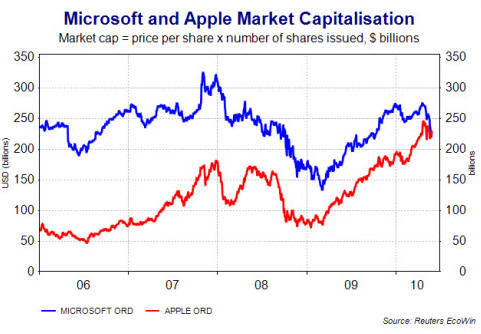 |
||
| Apple - Microsoft | ||
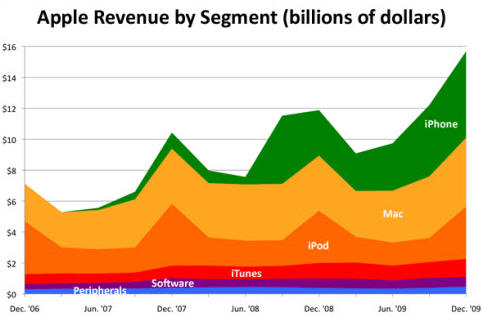 |
Apple Inc. is an American multinational corporation headquartered in Cupertino, California, that designs, develops, and sells consumer electronics, computer software and personal computers. Its best-known hardware products are the Mac line of computers, the iPod media player, the iPhone smartphone, and the iPad tablet computer. Its consumer software includes the OS X and iOS operating systems, the iTunes media browser, the Safari web browser, and the iLife and iWork creativity and productivity suites. Apple was founded by Steve Jobs, Steve Wozniak, and Ronald Wayne on April 1, 1976 to develop and sell personal computers. It was incorporated as Apple Computer, Inc. on January 3, 1977, and was renamed as Apple Inc. on January 9, 2007 to reflect its shifted focus towards consumer electronics. Apple is the world's second-largest information technology company by revenue after Samsung Electronics, and the world's third-largest mobile phone maker after Samsung and Nokia.[4] Fortune magazine named Apple the most admired company in the United States in 2008, and in the world from 2008 to 2012. On September 30, 2013, Apple surpassed Coca-Cola to become the world's most valuable brand in the Omnicom Group's "Best Global Brands" report. However, the company has received criticism for its contractors' labor practices, and for Apple's own environmental and business practices. | |
| Apple | ||
 |
The music industry consists of
the companies and individuals that make money by creating and
selling music. Among the many individuals and organizations that
operate within the industry are: the musicians who compose and
perform the music; the companies and professionals who create and
sell recorded music (e.g., music publishers, producers, recording
studios, engineers, record labels, retail and online music stores,
performance rights organizations); those that present live music
performances (booking agents, promoters, music venues, road crew);
professionals who assist musicians with their music careers (talent
managers, business managers, entertainment lawyers); those who
broadcast music (satellite, internet and broadcast radio);
journalists; educators; musical instrument manufacturers; as well as
many others. The current music industry emerged around the middle of
the 20th century, when records had supplanted sheet music as the
largest player in the music business: in the commercial world,
people began speaking of "the recording industry" as a loose synonym
of "the music industry". Along with their numerous subsidiaries, a
large majority of this market for recorded music is controlled by
three major corporate labels: the French-owned Universal Music
Group, the Japanese-owned Sony Music Entertainment, and the US-owned
Warner Music Group. Labels outside of these three major labels are
referred to as independent labels. Silicon Alley Insider |
|
| Music Industry | ||
